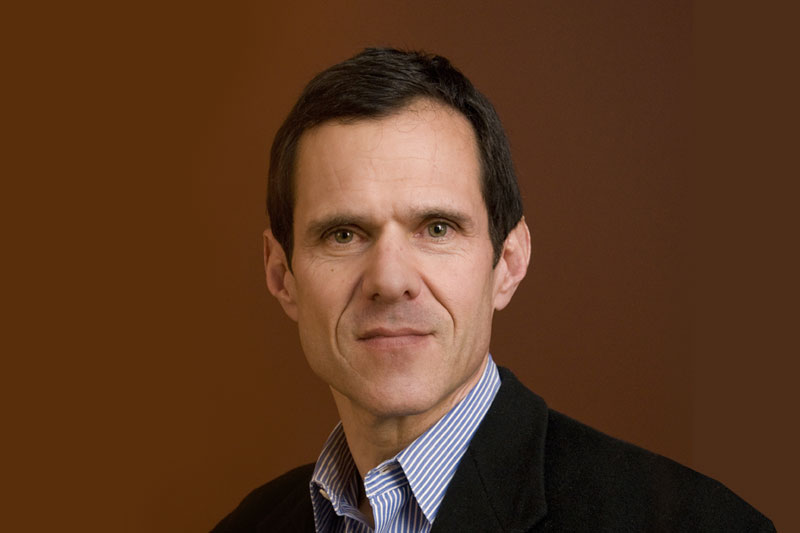Entrepreneur-in-Residence
The Washington Clean Energy Testbeds’ Entrepreneur-in-Residence (EIR) program operates in conjunction with UW CoMotion’s mentors program. Testbeds EIRs advise entrepreneurs and early-stage climate tech startup companies on team formation, product development, strategic marketing, fundraising, manufacturing strategy, and business development. Weekly office hours are free and open to aspiring and established climate tech entrepreneurs and business teams.

Babu Jain
Babu Jain is a renewable energy entrepreneur with more than 30 years of experience leading global startups as well as technology teams at Fortune 500 companies, with leadership experience in the United States, India, Singapore, and Germany. He is the Founder & CEO of Navia Energy Inc., a renewable AI technology company, and has served as an Entrepreneur-in-Residence at UW CoMotion since 2017. As a founder, Babu led NavSemi Energy from launch to acquisition by Alpha Technologies Inc. (now an EnerSys company). As a VP for Design Centers, Babu scaled Infineon’s small R&D team in Asia to 600+ engineers and scaled sales operation for Infineon India. As an Engineering executive, he deployed game-changing technologies in power and industrial controls, communication, and optical networking while at Infineon and other technology corporations. Babu has an MBA from SUNY-Buffalo and a BSEE from BITS Pilani (India), and holds 4 patents in energy systems.
Babu’s office hours are 1–2 pm Monday–Thursday or by appointment. On-site office hours will be held about once a month, with other office hours held virtually.
Contact: babujain@uw.edu
Past EIRs:
Volha Hrechka — Industry AI, Microsoft
Dhileep Sivam — CEO, Aquagga
Tom Madden — CEO & Co-Founder, Cool Amps Corp.
Ben Bierman — Principal Consultant, Integration Advantage
Scott Case — Co-Founder & CEO, Recurrent
Ramkumar Krishnan — Head of Cleantech Incubation, LG
John Plaza — President & CEO, SkyNRG North America
Investor-in-Residence
The Washington Clean Energy Testbeds has partnered with E8, a climate tech angel investment group based in the Pacific Northwest, to establish an Investor-in-Residence (IIR) program. The IIR provides free consultations on funding proposals, investor pitches, financial strategy, fundraising, and strategic partnerships to climate tech entrepreneurs and startups via regular office hours.

Jeff Canin
Jeff Canin is the Testbeds Investor-in-Residence, a VertueLab board member; and a co-manager of the E8 Fund. Jeff’s career includes extensive experience in financial services and venture capital. His current efforts are focused on providing advisory services to early-stage companies and university technology commercialization spinouts.
To schedule a meeting with Jeff, contact wcet@uw.edu.
Grant Support
The Testbeds management, staff, and network partners are experienced grant writers and reviewers. Researchers with aligned technical goals can receive dedicated support for research grants from federal and state agencies, as well as small business opportunities such as SBIR and STTR grants. Contact wcet@uw.edu to learn more.
Researchers preparing proposals that utilize the Washington Clean Energy Testbeds are welcome to draw from the following text:
The Washington Clean Energy Testbeds is a 15,000 square-foot facility designed to assist in the scale-up, prototyping, testing, and validating of clean energy innovations. The Testbeds are used by faculty, students, and researchers at the state’s leading companies and research institutions, as well as innovative clean energy startup companies from around the United States.
The expert staff and specially-designed facility allow researchers to test materials and develop functional devices at scales from that of a lab bench to a commercial solar panel or battery stack. Furthermore, hardware and software operating systems can be tested for deployment at the utility scale. The lab-to-industry line of sight is supported by the three integrated disciplines of the Testbeds: research and training, scale-up and characterization, and systems integration.
The purpose of the Testbeds is to reduce the capital and risk associated with research and technology transfer from the lab to industry, enabling researcher to maximize the value of grant awards and investment dollars as their discoveries build toward new commercial opportunities. The Testbeds house a community of researchers from academia and industry in close proximity to other cutting-edge research facilities at the University of Washington. This allows individual teams of investigators to pursue the next advancement while building partnerships with other inventors and institutions, including external partners like the Pacific Northwest National Laboratory, the National Renewable Energy Laboratory, and other leading universities.